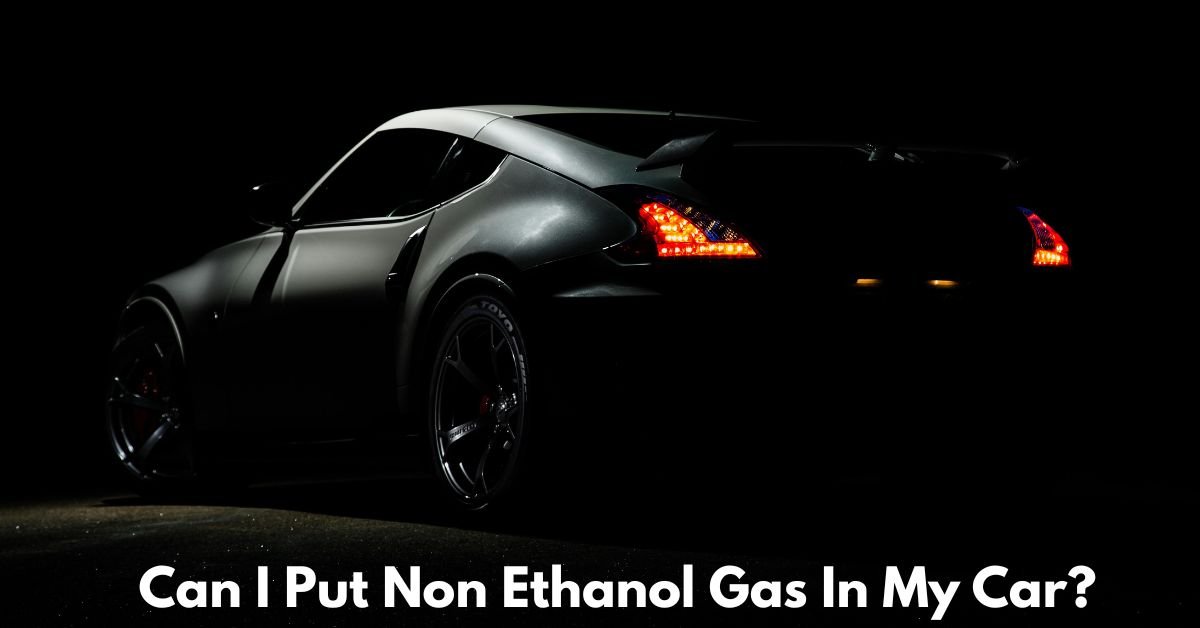When it comes to fueling up your vehicle, it’s common to rely on the standard gasoline mix with ethanol, which is typically around 10% ethanol and 90% gasoline. But what about non-ethanol gasoline? You might have come across a gas station offering it, and perhaps you’ve wondered whether it’s okay to put non-ethanol gas in your car. Is it better for your engine, or could it cause damage? Let’s dive into the details of using non-ethanol gas and its impact on your vehicle.
Can I Put Non-Ethanol Gas in My Car?
What is Non-Ethanol Gas?
Non-ethanol gas, often referred to as “pure gasoline,” is fuel that does not contain ethanol, a type of alcohol added to most modern gasoline to help reduce emissions and provide better fuel efficiency. Ethanol is a renewable resource typically made from corn, and it’s mixed into gasoline as part of a government mandate to reduce pollution and increase energy sustainability.
Non-ethanol gasoline, on the other hand, is simply gasoline without the added ethanol. It’s available at certain gas stations, often labeled as “E0” gas (meaning 0% ethanol). Some drivers prefer non-ethanol gas for its perceived benefits, but is it safe to use in a typical car?
Can You Put Non-Ethanol Gas in Your Car?
In most cases, yes, you can put non-ethanol gas in your car. The vast majority of modern vehicles can run on pure gasoline without issue, but there are some things to keep in mind.
- Compatibility with Your Vehicle
Most vehicles built after the early 2000s are designed to run on ethanol-blended gasoline, typically E10 (10% ethanol and 90% gasoline). These cars are compatible with ethanol and have been optimized to handle its presence in fuel. Non-ethanol gas, with its higher energy content due to the absence of ethanol, can be used in these vehicles without causing immediate harm. However, if your car was manufactured to run specifically on ethanol-free fuel or you own a classic car, small engine, or some types of older motorcycles, non-ethanol gas may be a better option. Older vehicles may not have the same engine design to handle the effects of ethanol, which can corrode certain engine parts over time. - Impact on Engine Performance
One of the primary reasons people turn to non-ethanol gasoline is the belief that it leads to better engine performance. Pure gasoline does not attract moisture, unlike ethanol, which can absorb water and cause issues with fuel lines, injectors, and the combustion process. If you live in a humid area, using non-ethanol gas can potentially help prevent these moisture-related problems. Additionally, because ethanol has a lower energy density than pure gasoline, non-ethanol gas can sometimes provide slightly better fuel economy. You might get a few extra miles per gallon since pure gasoline has more energy per unit than ethanol-blended gas. - Long-Term Benefits for Small Engines
Small engines, such as those in lawnmowers, boats, motorcycles, and ATVs, often benefit from non-ethanol fuel. These engines are particularly susceptible to ethanol-related issues like corrosion and gumming, which can cause them to malfunction over time. Non-ethanol gasoline is typically the recommended fuel for these types of engines to ensure they run smoothly and have a longer lifespan.
Must Read: Are Car Batteries AC or DC Voltage?

Potential Drawbacks of Non-Ethanol Gas
While non-ethanol gas might seem like a perfect solution, there are a few things to consider before making the switch:
- Availability
Non-ethanol gas is not as widely available as ethanol-blended gasoline. You may need to seek out specialty gas stations that offer pure gasoline, and these stations might be limited depending on where you live. - Cost
Non-ethanol fuel tends to be more expensive than ethanol-blended gasoline. The price difference can vary depending on your location, but in general, you might end up paying 20 to 30 cents more per gallon for non-ethanol gas. This could add up over time if you drive frequently. - Environmental Impact
One of the main reasons for the widespread use of ethanol in gasoline is its positive impact on reducing greenhouse gas emissions. Ethanol is a renewable resource, and its use in fuel helps decrease our dependence on fossil fuels. By opting for non-ethanol gas, you may contribute to a higher carbon footprint, as it is derived from non-renewable petroleum.
Should You Use Non-Ethanol Gas in Your Car?
If you own a modern car with a flexible fuel system or one built to run on E10, there’s no harm in occasionally using non-ethanol gas. In fact, it might provide some benefits, especially if you’re trying to avoid moisture-related issues or seek a slightly better fuel economy.
However, unless you have a specific reason (such as an older vehicle or small engine), there’s no pressing need to always choose non-ethanol gasoline. In most cases, the ethanol-blended fuels found at your typical gas stations will work just fine and offer benefits in terms of environmental impact and cost-effectiveness.
Conclusion
Putting non-ethanol gas in your car is generally safe, and it might offer some benefits in terms of engine performance and fuel efficiency. It’s important to weigh the pros and cons—especially the availability and cost—before making it a regular choice. If you have a newer vehicle, sticking with the standard ethanol-blended gasoline is usually the best option unless you have a particular need for non-ethanol fuel. As always, refer to your vehicle’s manual for specific fuel recommendations.
So, if you’ve been wondering, “Can I put non-ethanol gas in my car?”—the answer is yes, but consider your vehicle type and the possible trade-offs before making that decision.
